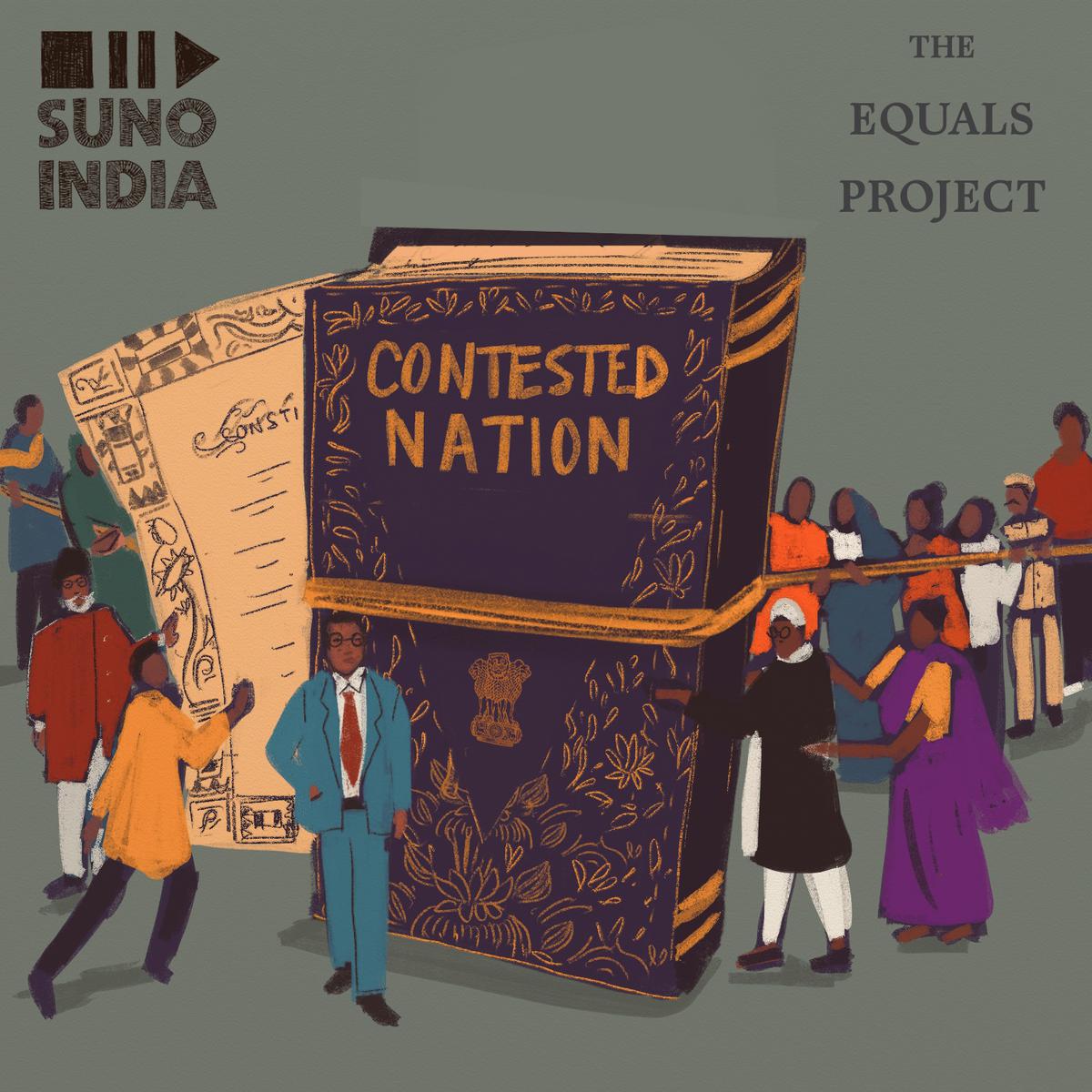
Dr Rajendra Prasad as President of the Constituent Assembly signing the new Constitution as passed by it.
| Photo Credit: The Hindu Archives
India celebrates Constitution Day or Samvidhan Divas on November 26. It was on this day in 1949 that the Constituent Assembly adopted the Constitution of India that came into effect from January 26, 1950. Our Constitution encompasses the ideals that underline the ethos of our nation, its political code, structure, powers, duties of Government institutions and its citizens, and their fundamental rights, making it the longest written constitution in the world.
Chennai-based The Equals Project, an initiative that helps people better understand the Constitution and their relationship with it, has partnered with Suno India, a multilingual podcast platform, to explore the issues discussed in the Constituent Assembly.
The Project, peopled by two lawyers, an engineering graduate, and a design associate, and founded by Shruti Viswanathan, a graduate of National Law School of India University, has focussed on the Constitution in its workshops, walks and book discussions since it was established in 2019.
Shruti Viswanathan
| Photo Credit:
Special arrangement
“Season 1 of Contested Nation has eight episodes that individually cover subjects such as the fundamental right to marry, free speech and even the Constituent Assembly of Pakistan. The common theme is the Constituent Assembly of India, the events discussed in it and the political events outside it that drove us to this moment. The idea of India and the vision for its future was hotly contested, both inside and outside the Assembly. Some members of the Constituent Assembly refused to sign certain clauses saying that the importance of the states had been compromised, minority rights are not protected enough, etc. It is important to understand why we made the choices we did. The fault lines we see between 1947-49 are the same we see in public life today — caste, language… the tone of discourse has remained the same. What does it mean to be an Indian is a question we are struggling with even today. To move forward, we need to look back,” says 34-year-old Shruti.
The podcasts are all under an hour and follow a script on the broad issue being discussed. “If it’s too complicated like the discussion on Citizenship, we split it into two episodes.”
A team of four works on research, fact-checking and design while Suno India helps with editing and publishing.
The project chose speakers who were accessible to the audience; had knowledge of the subject matter, and diverse opinions. “The Constituent Assembly is discussed largely by academics and jurists. We hope to expand that. For example, Ganeev Kaur Dhillon is a lawyer but also a curator of the Partition Museum, Amritsar, and brings her knowledge of documenting oral histories to the podcast,” says Shruti. “Our speakers include Maitreyi Krishnan, who looks at the unorganised sector in labour in Karnataka. We focussed on those who understand what restrictions on free speech mean for the practice of democracy, and not just from an academic end.”

The Equals Project in collaboration with Suno India has brought out the series of podcasts
| Photo Credit:
Special arrangement
Why the Constituent Assembly of Pakistan? “It was fascinating because here we have two assemblies that start off in similar ways, created in the same moment with founding leaders who made a case for inclusivity. But the journey takes a different course in Pakistan. The first assembly was dissolved even before the constitution was written. It took a 25-year journey to get to the constitution they have today,” says Shruti.
The podcast draws heavily on audio clips, historical sources such as Mountbatten announcing the Partition of India, a clip from the 1973 film ‘Garam Hava’ on Partition, and different audio mediums tied to pop culture. “We look at everything from a non-legal lens, and of things about the Constitution we dont know of.”
Contested Nation can be streamed on Spotify.





